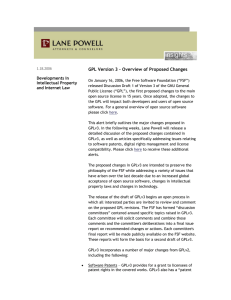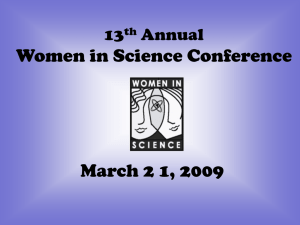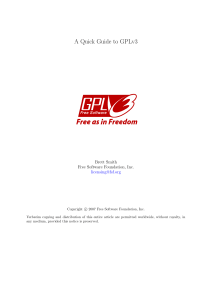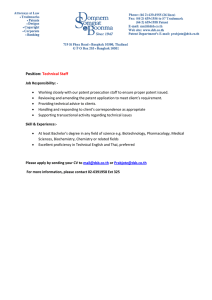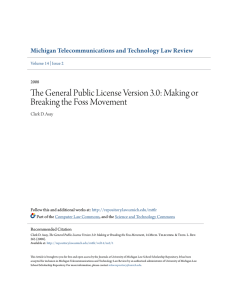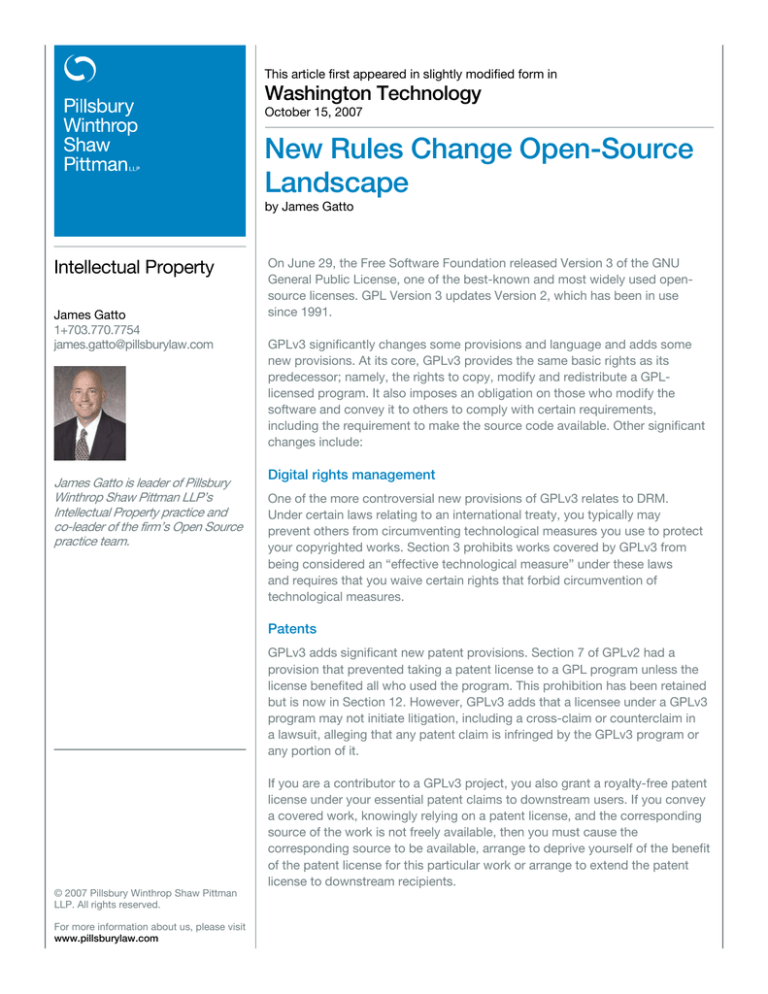
This article first appeared in slightly modified form in
Washington Technology
October 15, 2007
New Rules Change Open-Source
Landscape
by James Gatto
Intellectual Property
James Gatto
1+703.770.7754
james.gatto@pillsburylaw.com
James Gatto is leader of Pillsbury
Winthrop Shaw Pittman LLP’s
Intellectual Property practice and
co-leader of the firm’s Open Source
practice team.
On June 29, the Free Software Foundation released Version 3 of the GNU
General Public License, one of the best-known and most widely used opensource licenses. GPL Version 3 updates Version 2, which has been in use
since 1991.
GPLv3 significantly changes some provisions and language and adds some
new provisions. At its core, GPLv3 provides the same basic rights as its
predecessor; namely, the rights to copy, modify and redistribute a GPLlicensed program. It also imposes an obligation on those who modify the
software and convey it to others to comply with certain requirements,
including the requirement to make the source code available. Other significant
changes include:
Digital rights management
One of the more controversial new provisions of GPLv3 relates to DRM.
Under certain laws relating to an international treaty, you typically may
prevent others from circumventing technological measures you use to protect
your copyrighted works. Section 3 prohibits works covered by GPLv3 from
being considered an “effective technological measure” under these laws
and requires that you waive certain rights that forbid circumvention of
technological measures.
Patents
GPLv3 adds significant new patent provisions. Section 7 of GPLv2 had a
provision that prevented taking a patent license to a GPL program unless the
license benefited all who used the program. This prohibition has been retained
but is now in Section 12. However, GPLv3 adds that a licensee under a GPLv3
program may not initiate litigation, including a cross-claim or counterclaim in
a lawsuit, alleging that any patent claim is infringed by the GPLv3 program or
any portion of it.
If you are a contributor to a GPLv3 project, you also grant a royalty-free patent
license under your essential patent claims to downstream users. If you convey
a covered work, knowingly relying on a patent license, and the corresponding
source of the work is not freely available, then you must cause the
corresponding source to be available, arrange to deprive yourself of the benefit
of the patent license for this particular work or arrange to extend the patent
license to downstream recipients.
© 2007 Pillsbury Winthrop Shaw Pittman
LLP. All rights reserved.
For more information about us, please visit
www.pillsburylaw.com
If you convey a covered work and grant a patent license to some of the parties
receiving the work, the patent license is automatically extended to all
recipients of the covered work and works based on it. Certain prohibitions
against discriminatory patent licenses have also been added. If you hold
software patents and use or modify software licensed under GPLv3, you must
understand these new provisions and how they may affect your patent rights.
New Rules Change
Open-Source
Landscape
Other changes
For consumer products, you must not only make the source code available but
also make it possible for a user to modify and update the software on any
device capable of being upgraded in the field.
Section 8 adds new provisions regarding termination and your rights to cure
if you inadvertently breach the license. Section 10 addresses related company
transactions. These now typically will not trigger an obligation to release the
corresponding source. Certain flexibility has been added to make the GPLv3
compatible with some other open-source licenses with which GPLv2 was
not compatible.
Ironically, GPLv3 is not compatible with GPLv2. Many new terms are defined,
in part to put the GPL in an international context and avoid certain U.S.
copyright law-centric terms. Many other changes have been made.
It is critical to seek guidance from an attorney experienced in patents and
open-source licensing — particularly GPLv3 — before you decide to use or
distribute software under the GPL.
Pillsbury has a nationally recognized team of attorneys at the forefront of
emerging legal issues associated with open source software. The team
assists clients with the entire spectrum of open source issues, which includes
handling all aspects of open source due diligence in acquisitions and
financings, advising on IP aspects of open source use and distribution,
developing corporate policies and procedures regarding the use of open
source software and conducting open source audits.
Ironically, GPLv3 is not
compatible with GPLv2. Many
new terms are defined, in part
to put the GPL in an
international context and avoid
certain U.S. copyright lawcentric terms

